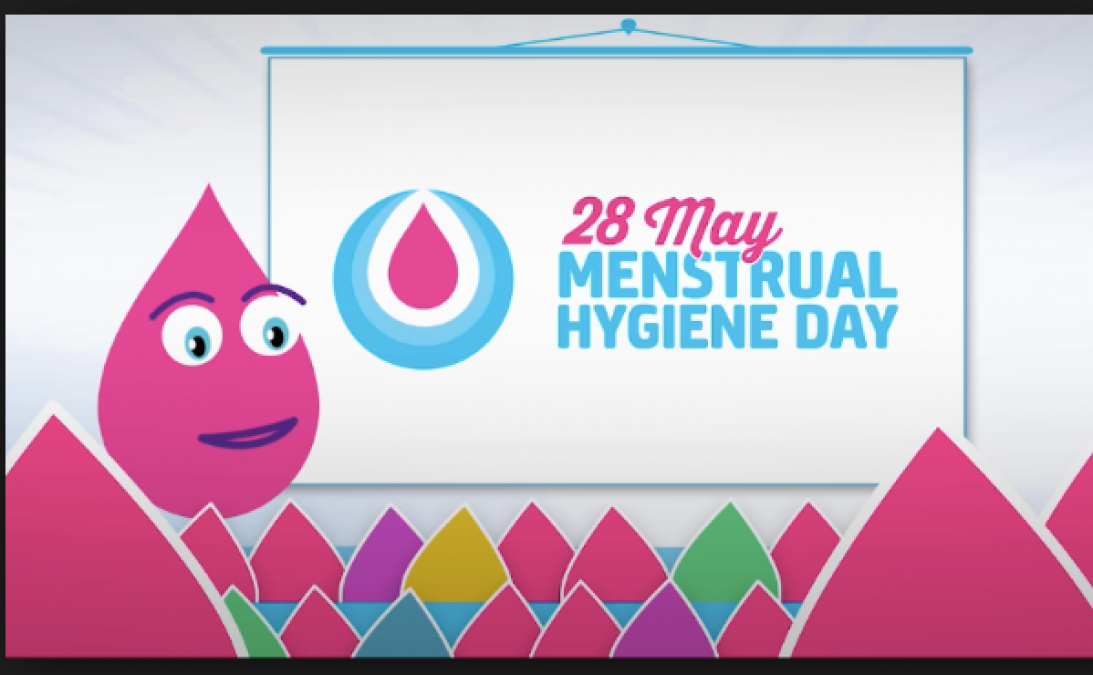
First things first: Menstruation is a natural bodily function, not a disease, as many of us still believe. It is a process that prepares the female body for pregnancy every month. During a menstrual period, blood and other materials from a woman’s uterine lining are discharged through the vagina. The process, which continues for 3-5 days every month, starts at puberty (10-15 years) and ends at menopause (40-50 years). However, this natural physical function is surrounded by a lot of stigmas and taboos. Women are almost made to feel ashamed and apologetic of their period, another name for menstruation. Moreover, this natural phenomenon comes with a host of physical symptoms like unbearable abdominal cramps and mood swings, which most women are unable to handle. Add to this the fact that there is lack of information about the hygiene standards that one needs to maintain during their period in order to keep several diseases and infections at bay. To address all these issues together, the Menstrual Hygiene Day (MHD) was instituted by the Germany-based NGO WASH United. Every year, it is celebrated on the 28th of May.
Well, a lot is being done to destigmatise menstruation all over the world through on-ground and online campaigns and spread awareness about this biological process. However, a lot more needs to be done. That’s why the theme for this year’s Menstrual Hygiene Day 2019 is
‘It’s Time for Action’. The theme highlights the need for governments, funders, NGOs and world bodies like UN agencies to be more proactive in educating women about menstruation, promoting the necessity of hygiene during this time of the month, giving them access to products that ensure hygiene and removing the taboo that is attached to periods.
Previous themes
Every year Menstrual Hygiene Day comes up with a different theme to address the varying range of issues related to periods. Here is the list of themes that the day centred around in the yesteryears.
also read Include these foods to satisfy your Midnight craving in a healthy way
History of Menstrual Hygiene Day
The celebration of MHD started in the year 2014. There is a reason behind choosing the month of May for the observance of this day. May is the 5th month of the year and women menstruate an average of 5 days every month. For the first time, in 2012, a few groups involved in public health campaign tried to turn everyone’s attention to the problem of menstrual hygiene. The next year in 2013, WASH United took up an initiative and conducted a 28-day social media campaign with caption “May #MENSTRAVAGANZA” to spread awareness about menstrual hygiene. The duration of the campaign was decided on the basis of the fact that then average length of a menstrual cycle is 28 days. After the campaign became successful and received positive feedback from all corners of the world, WASH United decided to create a global awareness day for menstruation. So, finally, from 28th May of 2014, Menstrual Hygiene Day started being celebrated globally. Apart from WASH United, its 145 partners are also part of this global campaign.
How to celebrate Menstrual Hygiene Day
Menstrual Hygiene Day is celebrated worldwide through rallies, movie screenings, theatre, exhibitions, workshops, seminars, and speeches, social media campaigns. There are a number of ways you can be part of these celebrations. You can use your social media handles to post pictures, videos, information or your views about menstruation. Also, you can share a relevant story to motivate people to break the taboo and open up about the issue boldly. This can inspire both men and women to come forward in an effort to destigmatise menstruation. Additionally, you can form a small group comprising of your close associates and hold a discussion about the various aspects of periods, starting from PMS to abdominal cramps and hygiene. Someone from the group can make a small video of the discussion and share on Twitter and Facebook.
Arranging a small rally in your locality, creating posters, banners and merchandise (T-shirts and caps) with messages on menstrual health will also be a good idea. School teachers and authorities can dedicate a whole period on 28th May to educate children about menstruation in an age-appropriate way. Holding a quiz session, or essay and painting competitions on periods among kids in the school premises could be an effective way of spreading awareness and dispelling the myths. These educational moves will reduce the chance of period shaming in the next generation.
Raising funds for buying sanitary pads for girls from the economically weaker sections of the society can be another good initiative. To. If you are involved with any event, big or small, register it on the official website of Menstrual Hygiene Day (www.menstrualhygieneday.org/events). It will appear on a map on the MH Day website. Involving media organisations to cover the events can also be really impactful as they will spread your message to a large cross section of the society.
also read Including Probiotics into your diet can do a miracle for health